Clashes In Iran’s Baluchestan Province Result In Baby’s Death
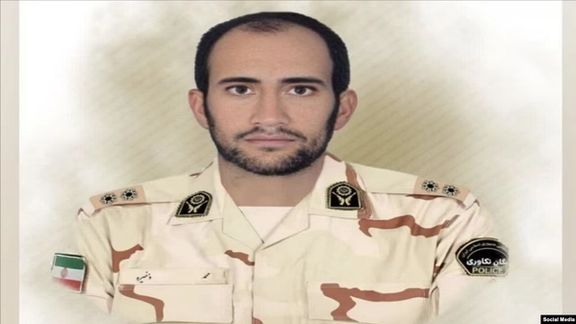
A confrontation between armed men and law enforcement forces along the route from Iranshahr to Khash in Sistan-Baluchestan province has led to casualties.

A confrontation between armed men and law enforcement forces along the route from Iranshahr to Khash in Sistan-Baluchestan province has led to casualties.
Among the victims are a one-year-old baby and a law enforcement officer, with three civilians sustaining injuries.
The Baluch Activists Campaign reported that armed men initiated gunfire at two law enforcement vehicles on Monday evening, resulting in the death of a law enforcement officer.
“In response, military forces retaliated by firing at the car of a Baluch citizen, resulting in the death of one-year-old Fatemeh Bameri and injuries to three others,” it added.
The Sistan-Baluchestan Law Enforcement Information Center presented the child's death as a consequence of armed men targeting her family's vehicle and identified the officer as Mohammad Zakhireh.
The incident adds to a concerning trend of increased armed attacks leading to deaths among regime forces in the largely Sunni province. Just a day prior, Iranian media reported the killing of border guard Mohammad Mehdi Nejatinia by unidentified assailants.
Furthermore, the event echoes past instances where innocent children have lost their lives due to direct fire from regime forces.
Kian Pirfalak, a nine-year-old child, was fatally shot by government forces during nationwide protests on November 16, 2022 highlighting the impact of such confrontations on civilian lives.
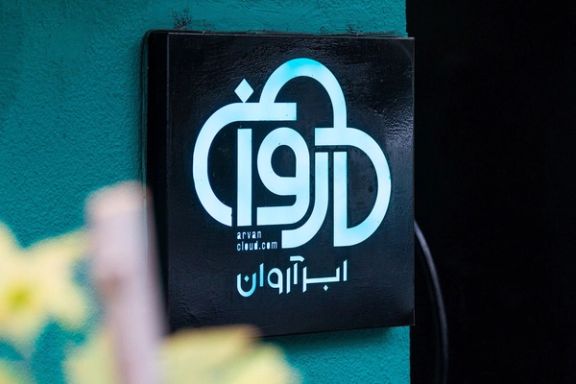
The European Union is set to remove ArvanCloud from its list of human rights sanctions, according to a source close to European diplomats. The firm was sanctioned in 2022 for its role in Iran's Internet censorship.
Following this action, ArvanCloud filed a complaint with the European Court of Justice and simultaneously pressured European governments through political channels to revoke this decision.
At the same time, ArvanCloud announced the termination of its contract with the Ministry of Communications and Information Technology of the Islamic Republic of Iran.
A source close to European authorities informed Iran International that ArvanCloud's overseas supporters claimed to have played a significant role in providing millions of Iranian citizens with access to a free internet during the Woman, Life Freedom protests in 2022-2023. This claim appears to be one of the reasons for the EU's decision to lift sanctions on ArvanCloud.
Iran has been blocking tens of thousands of websites since 2002, and as social media emerged, it began also blocking platforms such as Facebook, Twitter (X) and You Tube. Traditional media is also heavily censored, as are books and films, both from the perspective of Islamic beliefs and political content.
The European Union and ArvanCloud have not responded to Iran International's request for clarification about this information at the time of publication.
The European Union annually reviews its list of individuals and entities violating human rights in Iran and decides whether to renew the sanctions or not. The outcome of this decision is announced in the official EU newspaper one or two days later.
In June 2023, the US Treasury Department labeled ArvanCloud as a key partner of the Ministry of Communications and Information Technology of the Islamic Republic of Iran in developing the national information network and disconnecting Iranians from the global internet, based on which, two founders of this company were sanctioned along with one of its branches in the UAE.
A source close to decision makers in the EU told Iran International: "The 'Anonymous' hacking group previously exposed documents from the Islamic Republic's internet filtering committee server, showing that ArvanCloud had blocked various websites at the committee's request."
In one case, ArvanCloud officials went beyond the given orders and not only blocked a website but also its server's IP address.
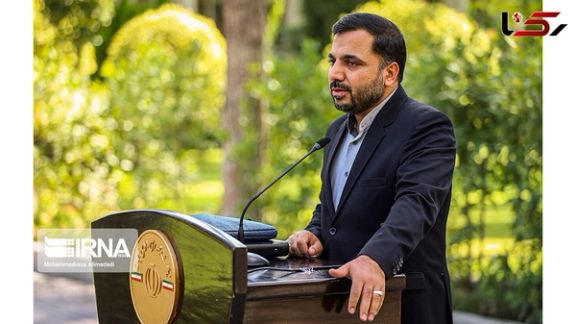
Documents released by Nariman Gharib, an internet researcher, in 2022 also showed that Issa Zarepour, the Minister of Communications, had asked President Ebrahim Raisi to take action through the Ministry of Foreign Affairs in cooperation with the European countries to remove ArvanCloud from the sanctions list.
In the same letter, Raisi was asked to agree that law firms associated with the embassies of the Islamic Republic undertake the defense of ArvanCloud at the government's expense.
ArvanCloud controls 49% of Iran's cloud space market and continues to host many of the Islamic Republic's most important websites, including the Presidency, IRNA news agency, and the Ministry of Islamic Guidance.
One of the information centers of this company is installed at Payam Airport, belonging to the Ministry of Communications.

The US announced counter-terrorism sanctions targeting facilitators aiding Yemen's Houthis, Iran's Quds Force, and the Lebanese group Hezbollah.
With Iran's longstanding support, the Houthis have fortified their position in Yemen's decade-long civil conflict, seizing control over vast territories with extensive financial and military backing.
Most recently the group has imposed a blockade on one of the world’s primary sea trade and logistics routes. Multiple attacks have been carried out on global shipping including multiple deaths of seamen earlier this month.
The latest sanctions, imposed on six entities, one individual, and two tankers spanning Liberia, India, Vietnam, Lebanon, and Kuwait, aim to disrupt illicit commodity shipments and financial transactions, according to the US Treasury Department.
State Department spokesperson Matthew Miller said, "We will continue to use the tools at our disposal to target those who ship illicit cargo to benefit terrorist groups."
However, as Iran’s proxy activity continues, many in Washington say sanctions are failing, not least in deterring Iran’s nuclear program which has continued to grow beyond peaceful limits.
In a parallel move, the Treasury Department sanctioned 11 individuals and entities accused of bolstering Syrian President Bashar Al-Assad's regime through illicit financial transfers and drug trafficking.
Iran's extensive backing extends beyond the Houthis, encompassing several other designated terrorist organizations in the region including Hamas in Gaza which waged war on Israel in October 7.

The arrest of Sereen Badiei, a US-Iranian dual national in Iran, who calls himself a "prince," has stirred controversy in Iranian social media and news websites worldwide.
Badiei, also known as Sereen Curtis, and calling himself as Prince Sereen, has been detained in Alborz province, on charges of "insulting sanctities," Iran's Judiciary confirmed.
"After informing the accused of the charges and issuing a temporary detention order, following the introduction to prison, he was handed over to the officer for further investigation," stated Mehdi Keshtdar, CEO of Mizan News Agency, affiliated with Iran's Judiciary.
Born in Tehran in 1973, Sereen, 51, who had been residing in the United States, faced criticism for his controversial videos targeting Islam, Shiite religion, the Quran, and the Iranian government.
The arrest has triggered varied reactions with some social media users expressing concerns about his fate and potential severe sentencing given his history.
"It doesn't matter to anyone that Sareen was arrested. Everyone makes jokes and laughs at him, as if he isn't an Iranian whose life matters…," lamented one user.
In contrast, supporters of the government welcomed his detention.
Demanding his execution, user Sadaf labeled Sereen as the perpetrator of insulting Muslim sanctities, while others accused him of immorality.
However, some users viewed Sereen's arrest as a ploy by the Iranian government to divert attention from pressing issues such as the exchange rate, inflation, and financial corruption allegations.
Iran frequently detains individuals holding Western passports and leverages them as bargaining tools. The resurgence of dual national hostages has come to attention following a recent Qatar-mediated agreement to release $6 billion in Iranian funds held in South Korea, in exchange for the freedom of five US citizens.
This has sparked accusations that the Biden administration is engaging in a risky strategy that could incentivize further hostage-taking of dual nationals overseas.
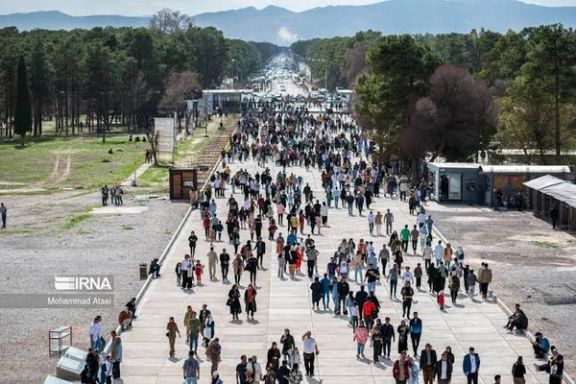
This year, the Islamic month of Ramadan coincided with the ancient Persian celebration of New Year (Norouz). Urged by authorities to follow fasting traditions, Iranians were asked not to travel during Ramadan.
But, despite these calls, the Iranian populace took advantage of the one-week Norouz holiday, starting on March 20, and visited the country’s ancient and cherished national monuments.
Authorities reported a staggering 2.8 million Iranians flocking to the nation's museums and historical sites during the New Year holidays.
Among these destinations, the tomb of the revered Persian poet Hafez in Shiraz witnessed the most substantial influx, attracting approximately 200,000 visitors. The ancient city of Persepolis received approximately 140,000 visitors, while the historic royal complex of Sa’dabad Palace in Tehran welcomed around 75,000 visitors.
Pictures and videos showcasing the 5-kilometer queue of cars entering Persepolis, along with the sizable gathering of Iranians at the nearby ancient archaeological site of Naqsh-e Rostam, circulated on local websites.
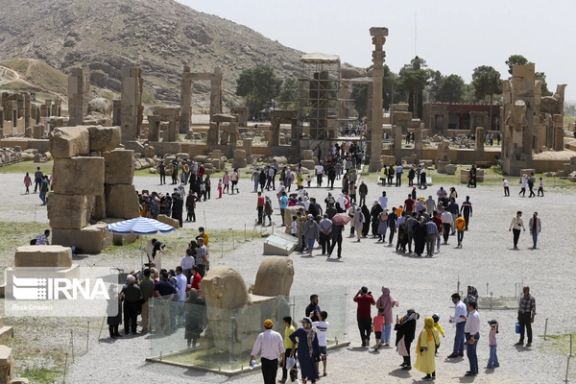
Some estimates suggest nearly 10,000 people were in Persepolis and 30,000 people at the tomb of Hafez to mark the exact moment of the Spring equinox – marking the beginning of the new year. In several provinces people gathered around traditional bonfires to dance and sing and celebrate.
On the flip side, a senior Iranian cleric has reported that two-thirds of the country's 75,000 mosques have been shut down.
The mosques of major cities may attract a small crowd during communal prayers – only at one time of the day. Morning and afternoon prayers are often not held. During the month of Ramadan, mosques in Muslim-majority countries typically witness a surge in attendance.
But, in Iran prayers have retreated to the privacy of people’s homes – reflecting a trend where people prefer not to show off their religiosity.
Notably, the list of the most visited places doesn't even include iconic and breathtaking mosques such as the Amir Chakhmaq Mosque in Yazd or the Shah Mosque in Esfahan.
While government propaganda outlets claim 5 million pilgrims entered Khorasan Razavi province, no photographic evidence depicting these purported millions of people or the vehicles transporting them have been published.
This figure is misleading as it implies that all those entering Khorasan Razavi province are pilgrims, whereas many visit the province to reunite with family rather than for pilgrimage. The photos accompanying these reports depict tens of thousands of pilgrims, not millions as claimed.
Three competing visions
What vision does the above social trend draw for the future of Iran? In what direction is the country heading? Despite enduring political and social upheavals, the main highways shaping Iran's future trajectory are rooted in Iran-centered nationalism, Islamism, and ethnocentrism.
None of these three can be eliminated, yet current developments vividly illustrate the path of nationalism over the other two.
Even religious reformers no longer believe that Islamism will remain the dominant vision. Ethnocentrism is present but not dominant. However, Iran-centric nationalism, once marginalized during the dominance of Islam-oriented discourse from the 1980s to the 2000s, has emerged as a serious and formidable contender against both Islam-oriented and ethnocentric perspectives in recent years.
Among these three paths, the Islam-centered one has been thoroughly explored in the past, with its failures and disastrous outcomes evident for Iranians to see clearly. The effort of the Islamists was to realize this path in such a way that no one in Iran could even think of the other two. The Islamists wanted to build their ideal society without a rival by realizing religious totalitarianism and stopping the resistance of Iranian citizens against repressive and Islamist-oriented social engineering.
The Iran-centered roadmap was implemented over five decades by a group of patriotic people during the Pahlavi era and brought Iran security, prosperity, development, tolerance, and credibility in the world.
The only unexplored path remaining is ethnocentrism. The challenge with this approach is that, aside from advocating for self-government and local rule, it has not put forth a comprehensive vision for the nation-state. For this reason, individuals who do not align with the framework of ethnicities or have moved beyond ethnic affiliations do not see this vision as their salvation.
Since 2018, the Islam-oriented and ethno-oriented perspectives have not appeared much even in the scene of public protests. The slogan "Fundamentalist, reformist! It's over" – which permeated the political landscape of the country and was even somewhat echoed by politicians of the Islamic Republic in various forms – marked a pivotal moment in the decline of the Islam-oriented path in the nation. The ruling Islamists even beat the drum of military ambitions and missiles more than the elements of the Islam-oriented path. By using the combination of "Iranian-Islamic" for their programs, they attempt to make it Iran-centric. However, the Sharia-centric path and the lifestyle of the Shia clergy are so central in their programs that they leave no room for Iran.
Nationalist or patriotic movements, which the left falsely identifies as fascist and racist, are gaining momentum worldwide. They seek to liberate their nations from the influence of indoctrination, radical ideologies, identity politics, anarchism, and cultural relativism – ideologies that threaten the decline of Western civilization. Today, Iranian nationalism is focused on the salvation of Iran by eliminating Islamist policies.
Due to its compatibility with the lifestyle of the majority, social tolerance, development-oriented approach, and openness to the West, the Iran-centered path has garnered the greatest support from the common people in the streets and markets.
The slogan "Reza Shah, Rest in Peace" used in street protests, invoking the memory of the first King of the Pahlavi dynasty in Iran, effectively encapsulates this vision.
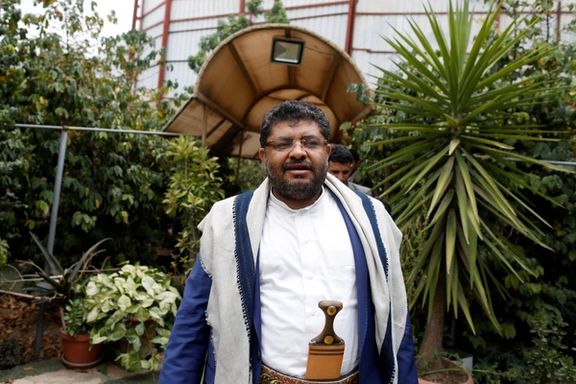
The Iran-backed Houthi terror group has renewed warnings against countries participating in attacks on its infrastructure amid US-led strikes against the group’s Red Sea blockade.
Mohammed Ali al-Houthi, a member of the group’s Supreme Political Council, issued the threats in an interview with Al-Masirah television channel, denouncing US pressure on other nations to join the 20-plus nation coalition against Yemen formed in response to its Red Sea blockade.
"We renew our warnings that any country that would act against our country would make its interests a legitimate target for us," al-Houthi stated, describing the US strikes as "arrogant" and "unjustified actions."
Al-Houthi also cautioned Saudi Arabia specifically against aiding the joint US-British aggression, warning that it would become a target for the rebel group which has been in a war with a Saudi-led coalition for almost a decade.
The Houthis have carried out dozens of missile and drone attacks on ships passing through the Red Sea, which they claim are linked to Israel. Recently, a Chinese-owned oil tanker was targeted, though no casualties were reported.
Despite the attacks, assurances were given to China and Russia that their ships would not be targeted, according to al-Houthi.
The US and UK have intensified strikes against Houthi positions to deter further attacks in the Red Sea, with recent strikes targeting underground storage facilities controlled by the rebels.
The blockade was launched in November on the orders of Iran’s supreme leader, in solidarity with terror group Hamas’s war against Israel, launched on October 7.
However, the blockade aiming to target Israeli linked vessels has since seen attacks on multiple international ships passing through the critical trade route.